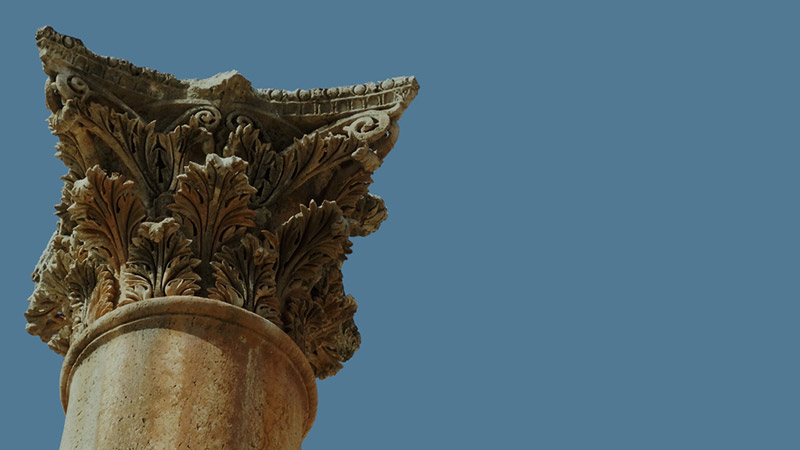Updating...
Showing 12 of 103

The environment of the Middle East, including Israel, is harsh and mostly unsuitable for settlement. For a location to be habitable, three conditions were needed:1. Fresh Water - Although rainfall is plentiful in some regions of Israel, most rain ...
MORE
The Mount of Olives is 2,650 feet above sea level. The ridge is two miles long. Beyond the Mount of Olives is the Judea Wilderness. The Old Testament predicted that the Messiah would come from the east through the wilderness and would enter Jerusa...
MORE
This aerial view looks north over the fertile plain of Gennesaret. The road follows the route of the biblical Way of the Sea (Matt. 4:12-17). The modern-day Kibbutz Ginnosar is not far from what was Gennesaret in Jesus' time.In the distance along ...
MORE
Built on the slope of the hill south of Ephesus and extending into the center of the city, this prominent temple could be seen from nearly everywhere in Ephesus, including the land and harbor entrances. The Ephesians, who built it to honor their e...
MORE
This view of Jerusalem is from the southwest, looking northeast over the Upper City. In the foreground is the Upper City on the Western Hill. Here the wealthy, Hellenistic citizens of Jerusalem lived, including the Sadducees. The section of the ci...
MORE
This photograph shows the remains of Sepphoris today. This glorious city, on a hilltop in Galilee, is slowly being uncovered by archaeologists. The name Sepphoris is the Greek translation of the Hebrew Zippori, which means "bird." Accord...
MORE
Tiberias Area Easily visible from Jesus' hometown of Capernaum, Tiberias, the regional capital built by Herod Antipas, stood on the western side of the sea. The city was shunned by religious Jews because it was supposedly built over a cemetery, ma...
MORE
Once within the walls of ancient Jerusalem, the Western Hill was located at the southwest corner of the city. This hill is very sacred to the Jewish people because it is the traditional spot of David's tomb. The upper room where Jesus ate the last...
MORE
Capital built by Herod Antipas on the Sea of Galilee's western shore; named for Tiberias Caesar. Believed to be built over a cementary and considered unclean by religious Jews. After AD 70, it became a center of Jewish religious thought.
MORE
This valley lay between David's City and the Western Hill where the Upper City was located. Hezekiah expanded the city into this valley. The Western Wall of Herod's Gentile Court was located here, as was the Pool of Siloam where Jesus sent a blind...
MORE
The highest area in Jerusalem (located on the Western Hill now named Mount Zion). Herod built his palace here, and many wealthy Jews also lived in the upper city. The area was dominated by affluent Hellenists.
MORE
Once within the walls of ancient Jerusalem, the Western Hill was located at the southwest corner of the city. It is very sacred to the Jewish people because it is the traditional spot of David's tomb. The upper room where Jesus ate the last supper...
MORE